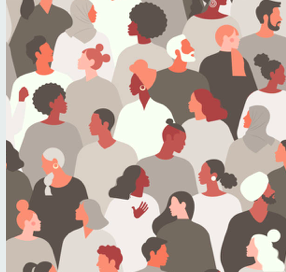A Story of Colorism
May 20, 2021

By Meha Khanna
I grew up in Colorado Springs, Colorado with immigrant parents who carried their personal experiences of oppression into my life. India was colonized by British settlers, idealizing Eurocentric beauty standards. The concept that fair equals beauty was not only normalized by my parents, but millions of other Indian people as well. While white people are glorified for having a “tan”, People of Color are oppressed for their color itself. Bollywood actresses endorse skin care lightening products and bleach their own skin to fit the ideal of “fair and lovely” branding. These standards of beauty that come from India are pushed onto Indian children all around the world which continues the legacy of colorism the British first established.
From the age of 7, I was pushed into using fairness cream sent from India since I wasn’t the typical “fair Punjabi girl” my sister was. At such a young age, I wasn’t aware that my skin was being bleached or why. I was just told that a magic cream would make the white people in my classes want to be my friend and that I would finally be “beautiful.” Regardless of her fair skin, my sister was not accepted by our white peers and told that she was “going to hell” for not being Christian at the very religiously discriminatory and racist school we attended. Being a light-skinned brown girl did not change my sister’s childhood of being Othered. Her experience pokes a hole in the argument that brown people should aspire towards white beauty standards in order to be accepted. No matter how fair, we will never be treated like we are white.
After the discrimination we encountered, I was moved to an “international” school. My parents hoped I would be accepted there & that I wouldn’t have to deal with the racism of my peers. Even though the new school was somewhat more progressive and I did not experience racism to the same degree, I still dealt with the same ideals instilled by the Indian community. Not only did my parents’ adult friends judge my beauty based on my skin color, but I, myself began to as well. Even now, at the age of 20, my Indian American friends and I dread the summer due to the fear of becoming darker and never leave the house without layers of sunscreen. This internalized oppression that darker-skinned Indian people face has lived on for too long and must be put to an end.
Skin color is not a determinant of beauty. Snow White was not beautiful because she was the “fairest of them all” and I do not lose my own beauty due to a summer tan. Beauty standards are societally created and we have the ability to shape them. Indian and Indian American people are continuously harmed by the current Eurocentric ideals set in place not only in India but in America as well. America encourages anti-Blackness and anti-brownness which is rooted in white supremacist oppression. As a country, we must acknowledge the harm created by equating beauty to white-based qualities. Colorism is a direct form of racism, rooted in anti-Blackness, that needs to be put to an end. The meaning of beauty lies in our hands and it is up to us whether we choose to oppress generations of dark-skinned people, or empower them. Choose to see beauty and value beyond skin color, as it is not a determinant of either.